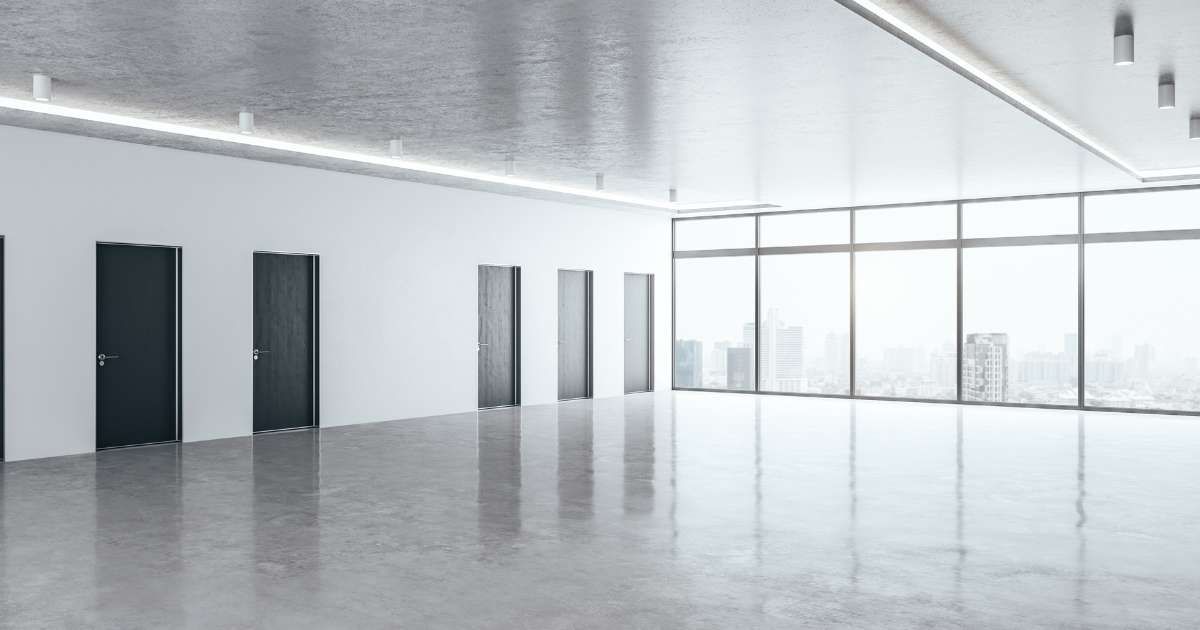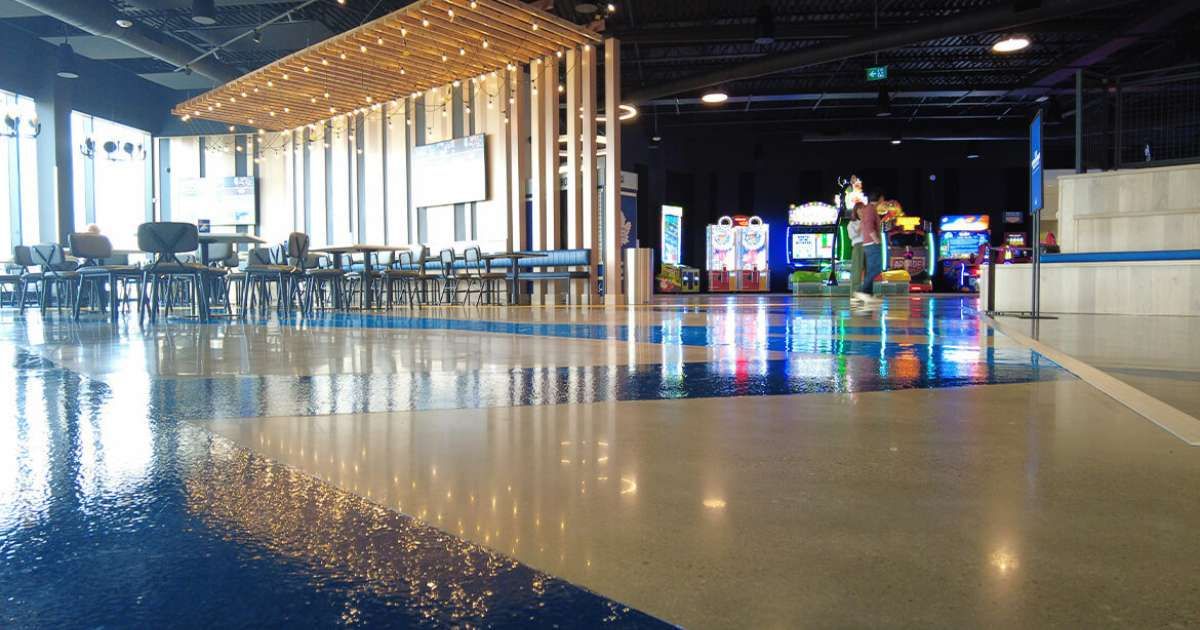
Sealers and densifiers. What are they, and what sets them apart? These are questions we get a lot, and for good reason.
Think of it this way: one acts as a shield on the surface, while the other reinforces from the inside out.
Choosing between concrete sealers and densifiers (or using a combination of both) isn't like picking a paint colour. You're making a decision that will affect your concrete floors' longevity as well as its look.
So let’s break it down.
At BNE, we are trusted experts in concrete finishing. We have the knowledge, equipment, and skills to properly install concrete for any type of project. Do not hesitate to reach out to us for your next construction project. We are just one phone call or email away!
Densifiers vs Sealers: Understanding the Basics
Imagine your concrete floor is like a sponge cake, naturally porous and filled with tiny air pockets.
Applying a concrete densifier is like pouring on a syrupy mixture that soaks into the cake, filling up the air pockets from the inside. This doesn't really change how the cake looks, but it makes it less prone to crumbling.
On the flip side, applying a concrete sealer is like slathering icing on the cake. It coats the surface, giving it a more polished or colourful finish, depending on the type you choose.
So, what’s better: sealers or densifiers? It all depends on the result you’re going for.
Sometimes, internal strength (thanks to the densifier) is all you need, especially if you want a natural concrete look and finish. Other times, sealing provides the protection and beauty your project needs on the outside.
And then, there are scenarios where your concrete benefits from the best of both worlds: internal fortification from a densifier and external protection/finish from a sealer.
To put it simply, here are the main differences between concrete densifiers and sealers:
Reaction with Concrete: Densifiers chemically bond with the concrete, making it harder and denser. Sealers lay down a protective coat without changing the concrete's structural makeup.
Durability and Longevity: By making the concrete more resistant to wear and abrasion, densifiers boost its durability. Sealers, particularly those that form a film on the surface, might need a touch-up over time due to wear or damage.
Protection Level: Both options extend the life of concrete floors, albeit through different mechanisms. Densifiers beef up the concrete's own resilience, while sealers act as a guard against external threats.
Appearance: If you're looking to spruce up your concrete's look, sealers can provide that extra sheen or hint of color. Densifiers, while mostly neutral in effect, help create a polished concrete finish when used as part of the flooring treatment process.
More About Concrete Densifiers
Concrete densifiers go by many names, including densifiers, hardeners, dust-proofers, and penetrating reactive sealers (not to be confused with penetrating sealers, which we’ll get into). Here, we’ll call them densifiers.
Concrete densifiers are silicate solutions containing chemicals that react with free lime (calcium hydroxide) a staple ingredient in concrete. This interaction produces calcium silicate hydrate (CSH), a powerhouse compound that doesn't just fill space, but also amplifies the concrete's density and toughness.
Diving deeper, densifiers work their magic by filling the tiny spaces left by water as it exits the concrete during the curing phase. This is where science gets interesting. The ensuing chemical reaction does more than fill these gaps—it forges a crystalline bond that locks sand particles and other components tightly together.
This process transforms the concrete's weaker, airy sections into a fortified, dense mass, perfectly encapsulating why these products are called "densifiers." The payoff is a less dusty, more durable surface that's primed for a standout polish.
Most importantly, while the initial reaction only takes an hour or two, the benefits of a densifier are permanent. No need for repeat applications.
It’s important to note that how effective this process is depending on the concrete's composition and condition. Not all concrete surfaces react the same way to densifiers, and there needs to be enough free lime present for the reaction to take place.
More About Concrete Sealers
Sealers lay down a protective barrier on the surface of the concrete floor to shield it from water, salts, chemicals, and more. This defense is crucial, not just for the functionality but also for the longevity of your concrete spaces.
There are two main types of concrete sealers: penetrating sealers and film-forming sealers.
Penetrating Sealers: While they don't densify the concrete to the extent densifiers do, silane and siloxane-based penetrating sealers can chemically bond with the substrate to provide durable protection. Penetrating sealers block moisture and harmful chemicals to protect the concrete from wear and tear such as corrosion and the dreaded freeze-thaw cycles. What's special about penetrating sealers is their ability to protect without changing the concrete's natural look. They’re great for a matte finish that is unmistakably concrete.
Film-Forming Sealers: These sealers sit on top of the floor’s surface, battling against abrasion, water, oil, and stains. With options like acrylics, polyurethanes, and epoxies, these sealers come in finishes that range from understated matte to dazzling high gloss. They’re great for customizing the look of your floors while layering on an extra bit of defense.
When it comes to choosing a sealer, it's not just about the look you want but the level of protection your space needs. Do you want an invisible shield of a penetrating sealer, or customization film-forming sealers?
When to Use Both
Think of applying a densifier followed by a sealer as the ultimate combo for floors in commercial or industrial settings. It gets you a floor that not only stands up to constant foot traffic but also repels the elements.
For example:
In commercial and industrial spaces with heavy traffic, a densifier beefs up the floor's resistance to wear and tear, while a sealer plays defense against spills and stains. This makes the floor durable and easy to maintain.
When you want polished concrete floors with that mirror-like finish, densifiers help prepare the surface and set the stage for a high gloss sealer that offers protection and the desired effect.
Outside, where the elements are in play, densifiers maintain durability and sealers step in with extra armor against moisture, freezing temperatures, and more.
Selecting the right flooring treatment—be it densifiers, sealers, or a combo—depends on the needs of your space.

Concrete Flooring Case Study: Cineplex
When Cineplex needed a flooring solution that could handle the hustle and bustle of movie-goers and arcade enthusiasts, all while keeping its shine under spilled drinks and popcorn, they turned to us. We assured them that we could provide a solution that was easy to clean and maintain without sacrificing the cool, sleek look Cineplex is known for.
We got to work, knowing this project needed a smart approach that balanced eye-catching polish with practicality.
To keep those floors tough enough to withstand heavy foot traffic and the occasional dropped popcorn, we went deep – not just cleaning up, but making the concrete itself more resilient. We chose a polished concrete system with a densifier, specifically Retroplate99, to improve the concrete’s natural strength and durability from the inside out.
Spills are part of the cinema experience, but stains don’t have to be! So we topped off our work with a high-quality epoxy sealer, creating an invisible barrier against water, pop, and whatever else might get thrown at it.
The result is a space that impresses movie-goers and withstands the test of time (and traffic). The client was thrilled with the blend of functionality and design flair, proving that when you've got the right team (and the right treatments) on your side, your floors can face anything – from blockbuster premieres to spilled who-knows-what.

Expertise Makes a Difference
When it comes to protecting and enhancing your concrete floors, the magic is not just in picking the right products but also in the application. Finishing concrete isn't about slapping a product and calling it a day. It's a science and an art form.
You need to understand how concrete behaves, how different products interact with it, and what works best in various conditions. This knowledge is key to making sure the densifier penetrates deeply enough to do its job or that the sealer coats evenly.
We know this might sound a bit technical, and that's where we step in. Every space is different, and there's no magic formula that works for everyone. That's why chatting with folks who know their stuff can save you a lot of headaches.
At BNE Concrete Floorings & Coatings, we're all about keeping things straightforward. We're here to help you figure out what your floors really need to stay looking and performing at their best, whether it's a bustling shop floor, a busy kitchen, or just an area that needs to shine
Need a hand deciding what’s right for your floors? Want to talk shop about keeping them in top shape? We're only a call or a click away.
